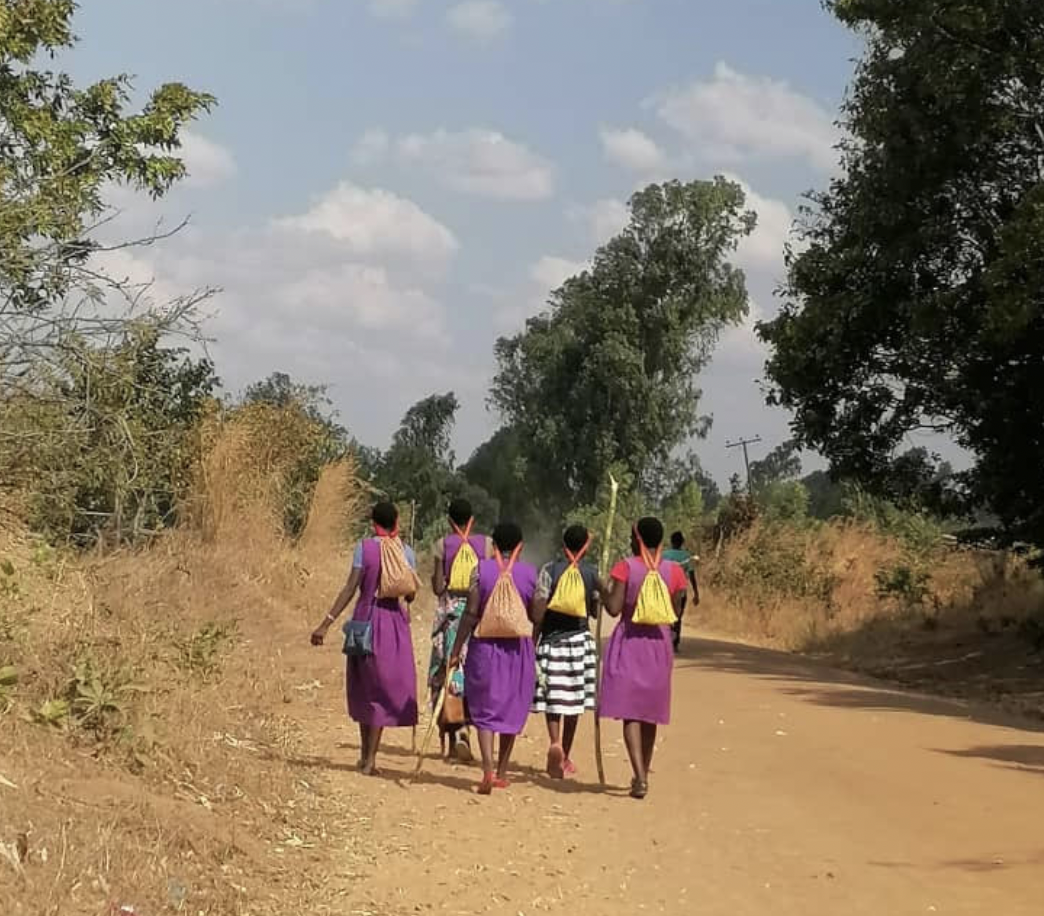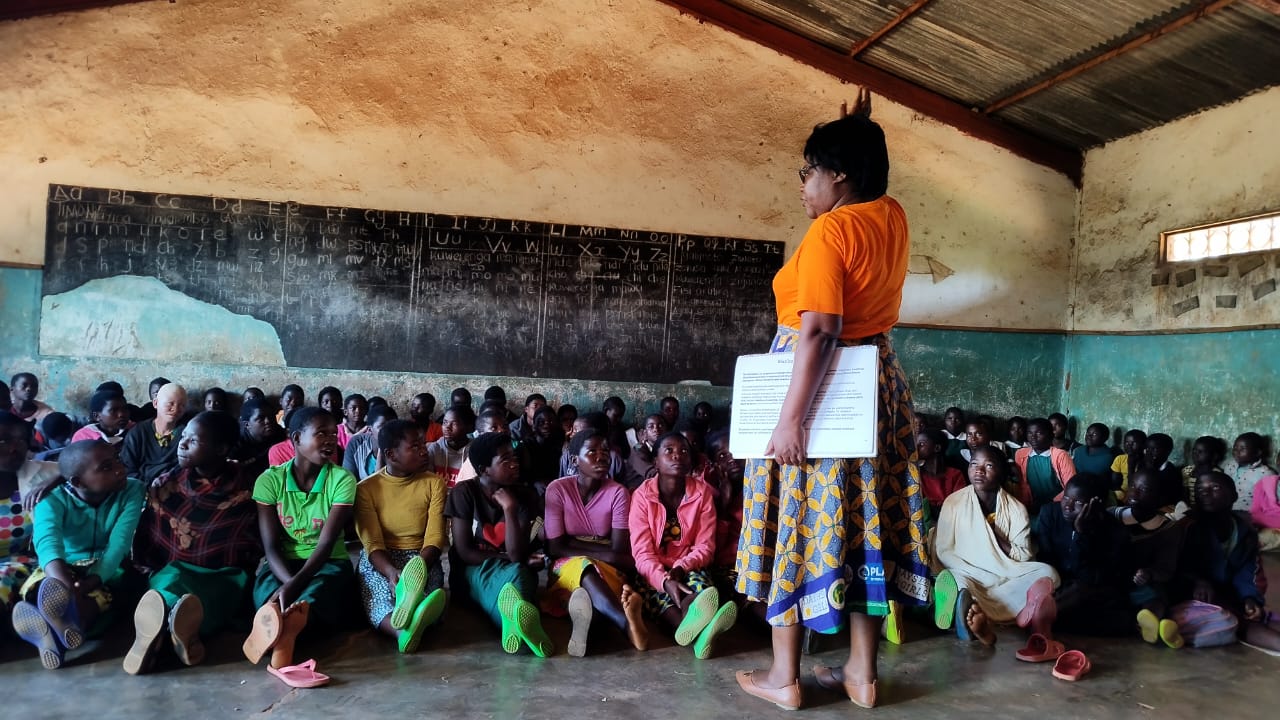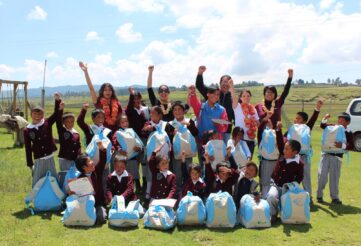Days for Girls in Malawi: Transforming Lives through Community Engagement

Days for Girls, with the generous support of This is L and partially funded by IREX and USAID, has been implementing a project in Malawi this year. The project spans seven districts including Kasungu, Rumphi and Mangochi. We have reached hundreds of girls and women as well as men and boys with Days for Girls’ menstrual health products and education, including girls attending a deaf/mute school. The efforts of Days for Girls Malawi (DfGM) are breaking down menstrual stigma, creating sustainable menstrual health environments and inspiring hundreds of young girls and boys.
Kasungo District
Our recent community engagement and distributions have had profound and lasting impacts. In Kasungo District, Malawi, we:
- Provided essential menstrual health knowledge and resources to 570 school-aged girls through
 comprehensive DfG education and locally produced, washable pad Kits.
comprehensive DfG education and locally produced, washable pad Kits. - Engaged 200 boys in our menstrual health education, fostering a supportive environment as they came to understand the importance of menstrual health. These initiatives aim to ensure that girls and boys can thrive and actively participate in their education and society.
- Engaged in meetings with chiefs, elders, parents, committee members, teachers, community counselors and religious leaders. We had meaningful discussions, raising awareness about the significance of menstrual health, education and community support.
Rumphi District
In addition to our work in Kasungo District, we have been actively engaged in the Rumphi District. Thanks to funding from USAID, IREX and This is L, we:
- Engaged 570 school-aged girls and 66 boys in DfG menstrual health education, which was expertly delivered by local leaders.
- Delivered locally-produced, washable menstrual pad Kits to the 570 girls, providing them with the products and education they need to stay in school, participate fully in society and confidently pursue their goals.
- Met with chiefs, elders, parent and teacher committee members, community counselors and religious leaders. Together, we discussed the importance of creating sustainable menstrual health environments for women and girls in the community. These conversations laid the groundwork for positive change and increased awareness of menstrual health.
Mangochi District
In Magochi District, DfGM:
- Reached 431 school-aged girls with locally produced DfG Kits and MH education.
- Engaged 67 boys in DfG’s Men Who Know menstrual health education.
- Met with chiefs, elders, parents, teachers, committee members, community counselors and religious leaders.
- Gathered research to change data on MH in Malawi and DfG’s program impact. This data will guide our efforts and ensure that we address the specific needs of the communities we serve.
Monitoring, Learning and Evaluation (MLE) Data
 We are humbled and inspired by the positive feedback we have received from the communities with which we have engaged. One testimony comes from our recent visit to deaf and mute students in Mzimba District. Their joy and gratitude were evident as they expressed their appreciation for being included and remembered in our work. Through sign language, they conveyed their excitement, stating, “You [Days for Girls] are the only ones who have ever remembered and included us in anything to do with puberty or menstruation. We have never received pads. We are very happy to be remembered and included by you.”
We are humbled and inspired by the positive feedback we have received from the communities with which we have engaged. One testimony comes from our recent visit to deaf and mute students in Mzimba District. Their joy and gratitude were evident as they expressed their appreciation for being included and remembered in our work. Through sign language, they conveyed their excitement, stating, “You [Days for Girls] are the only ones who have ever remembered and included us in anything to do with puberty or menstruation. We have never received pads. We are very happy to be remembered and included by you.”
Additionally, in a USAID and Youth Excel MLE study of our Malawi engagements, more than three-quarters (86%) of 165 surveyed participants agreed that their beliefs have changed due to DfGM interface meetings. Overcoming menstrual myths and stigmas is a vital element in establishing supportive and sustainable menstrual health environments.
Together with our partners – specifically USAID, IREX and This is L. – we are paving the way for a future where girls and women in Malawi can thrive, free from menstrual health barriers. Together, we can create lasting change and support girls and women to reach their full potential.









